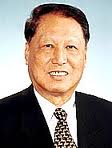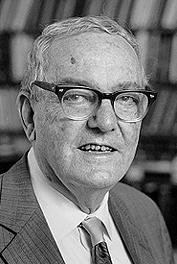Awards
Daniel Berg Award in Technology and Service Systems

Richard Larson has devoted his MIT-based professional career to the service sector, now representing about 80 percent of the U.S. economy. Dr. Larson has made significant contributions, often with his students and colleagues, in both public and private sector services. His public-sector work includes urban emergency services (police, fire and emergency medical), public health (e.g., pandemic influenza, PTSD), technology-enabled education, postal services, urban sanitation, criminal justice, dynamics of the federally-funded doctoral research workforce, and disaster management. His private sector research includes industrial gas distribution, home energy management, and quality of customer service. He is considered an expert on queues or waiting lines, both the physics and psychology of queues. With physics, Dr. Larson is inventor of the Hypercube Queueing Model -- for deploying urban emergency services -- and the Queue Inference Engine, using ’big data’ to determine the performance of technology-enabled queues such as automatic teller machines. Regarding the psychology of queues, Dr. Larson – using his alter-ego identity as “Dr. Queue” -- has been covered extensively by national and international media. Dr. Larson is a Founding Fellow of INFORMS, Past President of the Operations Research Society of America (ORSA), Past President of INFORMS, and member of the U.S. National Academy of Engineering. His publications have won best-paper awards in three different academic fields.

Jim Spohrer directs IBM's open source Artificial Intelligence (AI) efforts. Previously at IBM, he led Global University Programs, co-founded Almaden Service Research, and was CTO Venture Capital Group. After his MIT BS in Physics, he developed speech recognition systems at Verbex, an Exxon company, before receiving his Yale PhD in Computer Science/Artificial Intelligence. In the 1990’s, he attained Apple Computers’ Distinguished Engineer Scientist and Technology title for next generation learning platforms. With over ninety publications and nine patents, he won the Gummesson Service Research award, Vargo and Lusch Service-Dominant Logic award, and a PICMET Fellow for advancing service science.

Irene Ng is a Professor of Marketing and Service Systems and the Director of the International Institute for Product and Service Innovation at WMG, University of Warwick. She is also a Senior Member at Wolfson College, Cambridge. Irene was an entrepreneur and practitioner for 16 years before switching to an academic career. During her time in industry she occupied a number of senior positions in industry rising to become CEO of SA Tours and Travel group of companies (Singapore, Malaysia, China and UK) and founded Empress Cruise Lines, a company with an annual turnover of USD250m which she sold in 1996. An industrial economist through her doctoral training, Irene's research lies in the trans-disciplinary understanding of value and the design of markets and economic/business models. She is the recipient of several ESRC fellowship appointments, including being one of the 6 UK Advanced Institute of Management (AIM) research Services Fellows, the ESRC/NIHR Placement Fellow and more recently, one of the five ESRC/InnovateUK Innovation Caucus Thought leaders. Both an entrepreneur and an academic, Irene is passionate about the link between practice and research. She is an advisor to startups on new financial models in digital businesses.

Jian Chen is Lenovo Chair Professor and Chairman of Management Science Department, Director of Research Center for Contemporary Management, Tsinghua University. He received the B.Sc. degree in Electrical Engineering from Tsinghua University, Beijing, China, in 1983, and the M.Sc. and the Ph.D. degree both in Systems Engineering from the same University in 1986 and 1989, respectively. His main research interests include supply chain management, E-commerce, decision support systems and systems engineering. Dr. Chen has published over 200 papers in refereed journals and has been a principal investigator for more than 50 grants or research contracts with National Science Foundation of China, governmental organizations and companies. He has been invited to present several plenary lectures at international conferences. He has been elected to IEEE Fellow (2008). He serves as Chairman of the Service Systems and Organizations Technical Committee of IEEE Systems, Man and Cybernetics Society, and Vice President of Management Science and Engineering of China (2017-). He also serves as editor-in-chief/senior editor/editorial board member for many international journals.

Ralph Keeney received a Ph.D. in engineering and operations research from the Massachusetts Institute of Technology and subsequently joined the MIT faculty. Currently, he is a Research Professor Emeritus of Business Administration at Duke University and a Research Professor Emeritus of Industrial and Systems Engineering at the University of Southern California. He recently received an honorary doctorate from the University of Waterloo in Canada and has been a member of the National Academy of Engineering of the U.S. since 1995.

Xiaohui Liu is Professor of Computing at Brunel University London where he conducts research in artificial intelligence, data science and optimization, with applications in diverse areas including biomedicine and engineering. Xiaohui has held senior visiting positions in Leiden, Harvard and Chinese Academy of Sciences, advised UK Research Councils on data analytics, genomics and security as well as the Royal Statistical Society/the Institute and Faculty of Actuaries on statistical education at UK schools in light of big data. Professor Liu founded the international symposium series on Intelligent Data Analysis in 1995, and since 2014, he has been named as a Highly Cited Researcher for nine consecutive years in Computer Science, Engineering, or Cross-Field (Clarivate/Web of Science).

Mo Jamshidi (Life Fellow IEEE, F-ASME, AF-AIAA, F-AAAS, A. F-TWAS, F-NYAS) received BSEE, Oregon State University, USA in June 1967, the MS and Ph.D. degrees in EE from the University of Illinois-UC, USA in June 1969 and February 1971, respectively. He holds honorary doctorate degrees from three universities in Canda, Greece, and Azerbaijan. he is the LB Endowed Distinguished Chaired Professor Emeritus at the University of Texas, San Antonio (UTSA), USA. He has been an advisor to NASA (including 1st MARS Mission), US Air Force, USDOE and EC/EU. He has over 830 technical publications including 80 books (12 textbooks). He is the Founding Editor or co-founding editor or Editor-in-Chief or honorary editor of 6 journals including IEEE Control Systems Magazine and the IEEE Systems Journal. He is an Honorary Professor of 7 universities in China, Australia, UK, and Hungary. He is a Foreign Member of the Hungarian Academy of Engineering. He has received 10 awards and medals from the IEEE, US Army, and WAC congress. At the UTSA with 115 graduate students, he was involved in research on system of systems engineering with emphasis on robotics, UAVs, AI, ML, and sustainable energy systems. He has over 15,000 citations on Scholar Google. In 2023. he has published a book “History of Persian Scientists, Poets, and Artists: 28 Centuries of Contributions” available on both Amazon and at this site ( https://history-of-persian-scientists-poets-and-artists.g3n1u5.com/ ) free in 4 languages.
Richard Price Award in Data Science

Dr. Raj Reddy is the Moza Bint Nasser University Professor of Computer Science and Robotics in the School of Computer Science at Carnegie Mellon University. He is one of the early pioneers of Artificial Intelligence, has served on the faculty of Stanford and Carnegie Mellon University for over 40 years and was the Founding Director of the Robotics Institute at CMU.
Dr. Reddy received the ACM Turing Award in 1994 for his contributions to Artificial Intelligence. He was awarded the Legion of Honor by President Mitterrand of France in 1984 and Padma Bhushan by President of India in 2001. He was awarded the Okawa Prize in 2004, the Honda Prize in 2005, and the Vannevar Bush Award in 2006.
He served as co-chair of the President's Information Technology Advisory Committee (PITAC) from 1999 to 2001. He has been awarded eleven honorary doctorates (Doctor Honoris Causa) including Universities of Henri-Poincare, New South Wales, Massachusetts, Warwick, and HKUST.

Prof. P. Z. Wang is an academic leader in Fuzzy Sets, Factor Space theory and its applications in AI and DS in China and the world. He graduated (1957, B.S.) from, and worked, from assistant to professor, in Dept. of Math., Beijing Normal University (1957-1998). Prof. Wang was the Vice President of Chinese Fuzzy mathematics and System Association (1981-1990), and the Co-Chairman of the International Fuzzy Systems Association (1989-1993). He established the Falling Shadow Theory to build a serious mathematical basis for Evidence theory and Set-valued statistics methods in his book “Fuzzy Sets and Falling Shadow of Random Sets ”(1985). His Ph.D students manufactured second Fuzzy Inference Machine under his supervision (May,1988). Comparing with Yamakawa’s first one (July, 1987), Inference velocity from 10million/sec rises to 15million/sec. He was the chief of united project of Chinese Science Foundation “Fuzzy Information Processing and Fuzzy Computing” (consisting of 37 Universities and Institutes) (1998-1991).
Professor Wang initiated Factor Space theory in 1982. In the same year, Formal Concept Analysis and Rough Sets have been initiated simultaneously. The three branches belong to intelligent mathematics togather: They publicly put knowledge as the object of researching. Factor space provides framework of knowledge representation by his book ” Mathematical theory of knowledge representation” (1994) and in the book “Fuzzy System Theory and Fuzzy Computer ”(1995)
He organized the First Asian Fuzzy Engineering Symposium (AFSS) in Singapore (1993). He was members of editor boards of several Journals such as Information Technology and Decision Making, Sift Computing, Uncertainty, Fuzziness and Knowledge-based Systems; He was Editor of book series such as Advances in Fuzzy Systems: Theory and Applications. From 2012, Prof Wang has been serving as the director of Intelligent Engineering and Mathematics Institute, Liaoning Technical University and engaging to build fundamental theory for data science based on factor space.

Philip S. Yu is a Distinguished Professor and the Wexler Chair in Information Technology at the Department of Computer Science, University of Illinois at Chicago. Before joining UIC, he was at the IBM Watson Research Center, where he built a world-renowned data mining and database department. He is a Fellow of the ACM and IEEE. Dr. Yu is the recipient of ACM SIGKDD 2016 Innovation Award for his influential research and scientific contributions on mining, fusion and anonymization of big data, the IEEE Computer Society’s 2013 Technical Achievement Award for “pioneering and fundamentally innovative contributions to the scalable indexing, querying, searching, mining and anonymization of big data”, and the Research Contributions Award from IEEE Intl. Conference on Data Mining (ICDM) in 2003 for his pioneering contributions to the field of data mining. He received the ICDM 2013 10-year Highest-Impact Paper Award, and the EDBT Test of Time Award (2014). He had received several IBM honors including 2 IBM Outstanding Innovation Awards, an Outstanding Technical Achievement Award, 2 Research Division Awards and the 94th plateau of Invention Achievement Awards. He was an IBM Master Inventor. Dr. Yu received his PhD from Stanford University. Dr. Yu has published more than 1,000 referred conference and journals papers cited more than 80,000 times with an H-index of 131. He has received more than 300 patents.

Zongben XU, received his PhD degree in Mathematics in 1987 from Xi`an Jiaotong University, China. In 1998, he was a postdoctoral Research Fellow in the Department of Mathematics, The University of Strathclyde. He worked as a Research Fellow in the Department of Computer Science and Engineering from 1992 to 1994, and 1996 to 1997, at The Chinese University of Hong Kong; a visiting professor in the University of Essex in 2001, and Napoli University in 2002. He has been with the School of Mathematics and Statistics, Xi`an Jiaotong University since 1982, where he served as a professor of mathematics and computer science, Dean of Sciences (1997-2003), VP of the university (2003-2014) and Chief Scientist of National Basic Research Program of China (973 Project). He is currently the director of National Lab for Big Data Analytics and Dean of Xi’an Academy of Big Data and Artificial Intelligence.
Professor Xu makes several important services for government and professional societies currently, including Consultant member of National Big Data Development Commission, the New Generation AI Development Commission and the National Natural Science Foundation of China. He is VP of Industrial and Applied Mathematics Society of China (CSIAM), the director of Big Data and AI Committee of CSIAM. He is also the co- Editor-in-chief of Journal of Big Data Analytics and Textbooks Series on Data Science and Big Data Technology (Higher Education Press of China).
Professor Xu has published over 280 academic papers on nonlinear functional analysis, optimization, machine learning and big data resaerch, most of which are in international journals. His current research interests include mathematical theory and fundamental algorithms for big data Analysis, machine learning and data Science. Professor Xu has gotten many academic awards, say, the National Natural Science Award (2007), the National Scientific and Technological Advance Award (2011) of China,CSIAM Su Buchin Applied Mathematics Award (2008) and Tan Kah Kee Science Award ( in Information Technology Science, 2018) . He delivered a 45 minute talk at the International Congress of Mathematicians (ICM 2010) upon the invitation of the congress committee. He was elected as a member of Chinese Academy of Science in 2011.

Enrique Herrera-Viedma, is Professor in Computer Science and A.I in University of Granada and Vice-President for Research and Knowlegde Transfer. He is Vice-President for Publications in the IEEE System Man and Cybernetic Society. His current research interests include group decision making, consensus models, linguistic modeling, aggregation of information, information retrieval, bibliometrics, digital libraries, web quality evaluation, recommender systems, block chain and social media. In these topics he has published more than 250 papers in JCR journals and coordinated more than 22 research projects. Dr. Herrera-Viedma is EiC of the journal Frontiers in Artificial Intelligence and an Associate Editor of more than 10 JCR journals such as the IEEE Trans. On Syst. Man, and Cyb.: Systems, IEEE Trans. On Fuzzy Systems, Knowledge Based Systems, Soft Computing, Fuzzy Optimization and Decision Making, Applied Soft Computing, Journal of Intelligent and Fuzzy Systems, and Information Sciences. According to Web of Science his h-index is 64 with more than 17000 citations received and according to Google Scholar his h-index is 84 with more than 28000 citations. He has been identified by Clarivate Analytics as a Highly Cited Author in both scientific categories “Computer Sciences” and “Engineering” during the years 2014, 2015, 2016, 2017 and 2018.

Roman Słowiński, is a Professor and Founding Chair of the Laboratory of Intelligent Decision Support Systems at Poznań University of Technology, and a Professor in the Systems Research Institute of the Polish Academy of Sciences. As an ordinary member of the Polish Academy of Sciences he is its Vice President, elected for the term 2019-2022. He is a member of Academia Europaea and Fellow of IEEE, IRSS, INFORMS and IFIP. In his research, he combines Operational Research and Artificial Intelligence for Decision Aiding. Recipient of the EURO Gold Medal by the European Association of Operational Research Societies (1991), and Doctor HC of Polytechnic Faculty of Mons (Belgium, 2000), University Paris Dauphine (France, 2001), and Technical University of Crete (Greece, 2008). In 2005 he received the Annual Prize of the Foundation for Polish Science - the highest scientific honor awarded in Poland, and in 2020 - the Scientific Award of the Prime Minister of Poland. Since 1999, he is the principal editor of the European Journal of Operational Research (Elsevier), a premier journal in Operational Research.

HUANG Wei received the Ph.D. degree from Peking University in 1992. In 1993, he began his postdoctoral research at the Department of Chemistry, National University of Singapore (NUS), under the supervision of Prof. Huang Hsing Hua, and then taught at NUS. In 2002, he moved to Fudan University, where he founded the Institute of Advanced Materials (IAM). In 2012, he was the President of the Nanjing Tech University (Nanjing Tech). Since 2006, he has been the Deputy President of the Nanjing University of Posts and Telecommunications (NUPT). He was elected as an Academician of the Chinese Academy of Sciences in 2011. Now, he is working as the Deputy President of Northwestern Polytechnical University. His research interests include organic/plastic/flexible/biological (opto)electronics, nanomaterials, and nanotechnology.
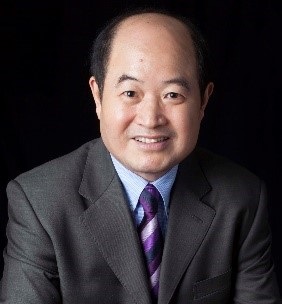
Yong Shi serves as the Director of the Research Center on Fictitious Economy & Data Science (FEDS) and the Director of the Key Lab of Big Data Mining and Knowledge Management (BDK), both at Chinese Academy of Sciences. He has been the Isaacson Professor, Union Pacific Chair and Charles W. and Margre H. Durham Distinguished Professor of University of Nebraska at Omaha, USA. He is the Elected Fellow of the World Academy of Sciences for the Advancement of Science in Developing Countries (TWAS, 2015), the Counselor of the State Council of the People’s Republic of China (2016), the Elected Member of the International Eurasian Academy of Sciences (IEAS, 2017), the Elected Fellow, the Asia-Pacific Artificial Intelligence Association (AAIA, 2022), and the Elected Fellow, the International Academy of Information Technology and Quantitative Management (IAITQM, 2022). His research interests include Business Intelligence and Analytics (BI&A), Big Data Mining and Knowledge Management, Data-driven Decision Making, Digital Economy, Artificial Intelligence, and Multiple Criteria Decision Making (MCDM). He has authored and co-authored over 32 books and more than 400 papers published in various peer-reviewed journals and conference proceedings. He has received a number of honors and awards, including the Georg Cantor Award by International Society on Multiple Criteria Decision Making (2009), the Fudan Prize of Distinguished Contribution in Management by Fudan Premium Fund of Management, China (2009), Science Fellow by the Commonwealth Scientific and Industrial Research Organization (CSIRO), Australia (2012), Doctor Honoris Causa of Agora University, Romania (2014), the WIC Outstanding Research Contribution Award, Chile (2018), and the Cheng Siwei Global Prize, China (2021). He has been the Founding Editor and the Editor-in-Chief of two academic journals, including International Journal of Information Technology & Decision Making (IJITDM, SCI) and Annals of Data Science (AODS, Springer).
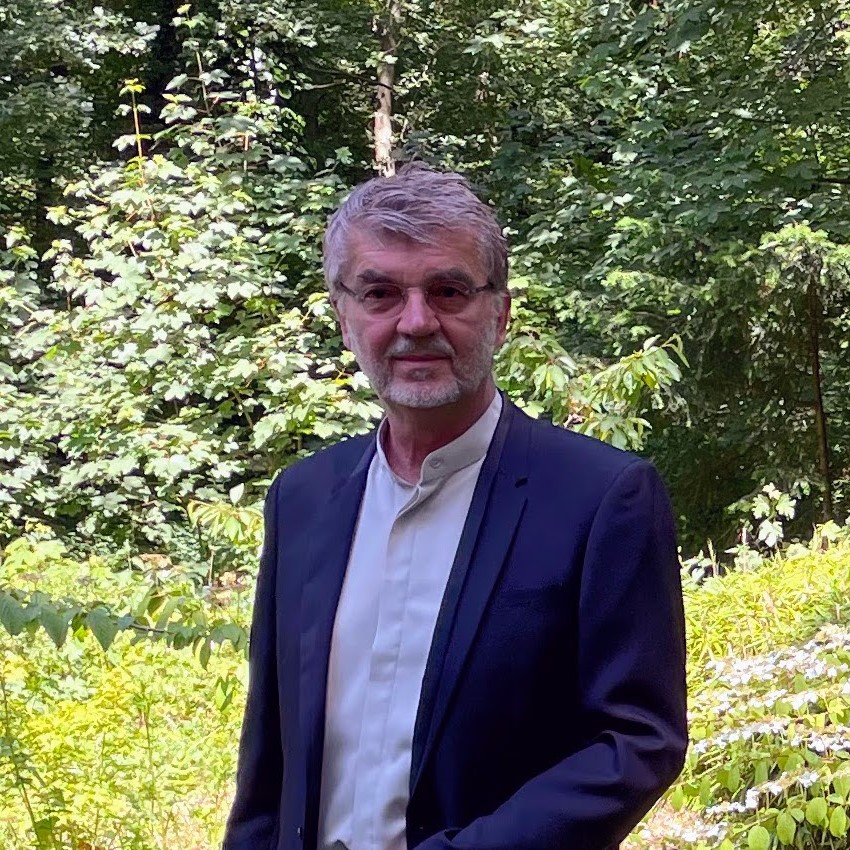
Peter Sloot (1956) (MSc Chemical Physics UvA; PhD Dutch Cancer Institute and University of Amsterdam) is research professor at the University of Amsterdam and the founding scientific director of the Institute of Advanced Study in Amsterdam. For 10 years he was leading the Complexity Institute in Singapore. Among other tokens of appreciation, he is a laureate of the Leading Scientist President's program (2010) for his study on novel complexity models. He has been the PI of many international research programs on computational science and complex systems. Up to recently he was the editor-in-chief of two highly ranked Elsevier Science journals. Prof. Sloot is the promotor of 60 PhD theses and has published over 450 research papers. His main interest is in understanding causality in complex adaptive systems. He recently founded the Applied Complexity company to empower organizations to master complex questions through data-driven complexity models. His work is covered in international media such as newspapers, TV interviews and documentaries.
Walter Scott Award in Information Technology

F. G. Filip (http://www.biblacad.ro/FlorinFilip.html) took his MSc and PhD degrees in control engineering from the T. U. "POLITEHNICA" of Bucharest, Romania, in 1970 and 1982, respectively. He has been with the National R&D Institute for Informatics (ICI) Bucharest since 1970. From 1971 to 1997, he was the managing director of the institute. He was elected as a member of the Romanian Academy (www.acad.ro)in 1991. He was elected as vice-president of the Academy in 2000 and re-elected in 2002, and 2006. In 2010, he was elected as the chair of the "Information Science and Technology" section of the Academy. In 2012, he became a founding member of the International Academy for IT and Quantitative Management (IAITQM). From 2002 to 2008, he was the chairman of the IFAC Technical Committee on "Large-Scale Complex Systems" (LSS). His main professional interests are the methodologies and applications of large-scale systems and computer aided decision-making. He is the author/co-author of seven monographs and over 200 journal articles and papers in various volumes, and the editor/co-editor of 21 contribution volumes.

Shouyang Wang, Dean of School of Economics and Management, University of Chinese Acdemy of Sciences, received his BS degree from Zhongshan (Sun-Yat) University in 1982 and his MS and Ph.D. degrees from Institute of Systems Sciences, Chinese Academy of Sciences, in 1984 and 1986 respectively. During 1987-88, he was a postdoctoral research fellow at Delft University of Technology in the Netherlands. He was visiting professor of Delft University of Technology in 1992, visiting professor of Barcelona University and University of Santiago de Compostela in Spain in 1994, visiting professor of Konan University in Japan in 1995 and visiting professor of City University of Hong Kong in 1998 and 1999. He also served as a foreign professor of The University of Tsukuba in Japan in September, 2000 - February, 2001. He was selected as a chair professor of "100 talent Program of Chinese Academy of Sciences" in 1996. During May, 1997 - August, 2000, he was appointed as the executive deputy director of Department of Management Sciences, National Science Foundation of China. He was associate director of Laboratory of Management, Decision and Information Systems, Chinese Academy of Sciences in 1993-1997. He was appointed as the director of this laboratory in December, 2000.
His research at present concentrates on Investment Analysis and Risk Management, Integrated Logistics, Game Theory and Conflict Analysis, and Multilevel Programming. He has published over 100 journal articles in leading journals including Journal of Optimization Theory and Applications, Computers & Operations Research, European Journal of Operational Research, International Journal of Systems Science, Journal of Mathematical Analysis and Applications, Group Decision and Negotiations, Optimization, Annals of Operations Research, and Mathematical Methods of Operations Research.
He is on the editorial boards of more than 10 journals, including Journal of Management Systems, Information Technology and Decision Making, Journal of Systems Science and Complexity, Journal of Management Science, and Journal of Systems Science and mathematical Sciences. He also served as the guest editor of an issue/volume of several journals including Annals of Operations research, and European Journal of Operational Research.
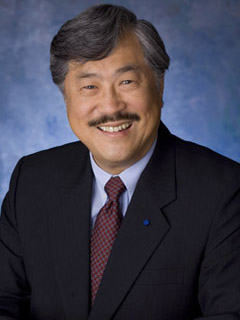
James M. Tien has been a Distinguished Professor and the Dean of the College of Engineering at the University of Miami, Coral Gables, Florida (2007-2015). He received the BEE from Rensselaer Polytechnic Institute (RPI) and the SM, EE and PhD from the Massachusetts Institute of Technology (MIT). He has held leadership positions at Bell Telephone Laboratories, at the Rand Corporation, and at Structured Decisions Corporation (which he co-founded). He joined the Department of Electrical, Computer and Systems Engineering at RPI in 1977, became Acting Chair of the department, joined a unique interdisciplinary Department of Decision Sciences and Engineering Systems as its founding Chair, and twice served as the Acting Dean of Engineering. Dr. Tien has published extensively, been invited to present dozens of plenary lectures, and been honored with both teaching and research awards, including being elected a Fellow in IEEE, INFORMS and AAAS and being a recipient of the IEEE Joseph G. Wohl Outstanding Career Award, the IEEE Major Educational Innovation Award, the IEEE Norbert Wiener Award, the IEEE Richard M. Emberson Award, and the IBM Faculty Award. He received a Doctor of Engineering (honoris causa) from Canada’s University of Waterloo and is also an Honorary Professor at over a dozen non-U.S. universities. Dr. Tien is an elected member of the prestigious U. S. National Academy of Engineering.
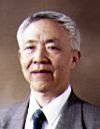
Jifa Gu, Professor, Academy of Mathematics and Systems Sciences, Chinese Academy of Sciences, Bachelor, Peking University (1957), PhD, Institute of Mathematics, USSR Academy of Sciences(1963), working in the fields of Operations Research and Systems Engineering. He published more than 30 books and 200 journal papers. He participated in practices on missile, energy, environment, water resource, regional strategy and various projects on evaluation. 1995 with Dr. Zhu ZC proposed Wuli-Shili-Renli system approach and got applications in many practical cases. In recent ten years he has engaged in the study and application of Meta-synthesis system approach and Knowledge Science He has participated in several national research programs related to social issues, digging experiences from TCM veteran doctors and study on the collective behaviors in Shanghai World Expo. He had been President of Systems Engineering Society of China, President of International Federation of System Research. Now he is academician and vice president of International Academy of System and Cybernetics Sciences, academician of Euro-Asia Academy of Sciences.
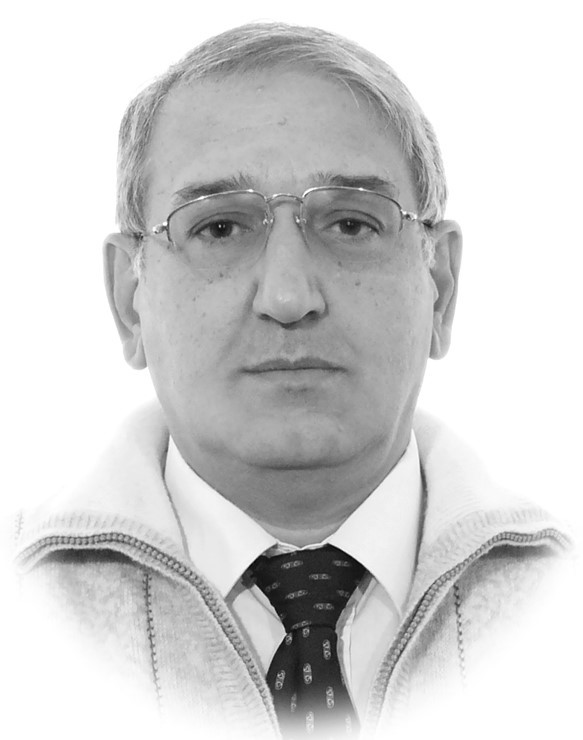
Fuad Aleskerov is the head of Department of Mathematics for Economics, National Research University Higher School of Economics, the head of International Laboratory of Decision Analysis and Choice, National Research University Higher School of Economics and the head of Laboratory of Choice Theory and Decision Analysis, Russian Academy of Sciences, Institute of Control Sciences. He got the PhD degree in Control in Socio--Economic Systems at 1981. He has published 10 books, more than 200 articles, more than 100 in peer-reviewed journals and volumes. He is the member of The Society for Social Choice and Welfare (member of the Council, 2008-2013), International Economic Association (member of the Executive Council, 2011-2017), American Mathematical Society and New Economic Association, Russia. He also participated more than 70 conferences and workshops as the invited speaker.
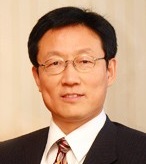
Ning Zhong is the founding editor-in-chief of Web Intelligence journal (IOS Press), the editor-in-chief of Brain Informatics journal (Springer Nature), the editor-in-chief of Brain Informatics & Health (BIH) book series (Springer Nature), and serves as associate editor/editorial board for several international journals and book series. Dr. Zhong is the co-founder and co-chair of Web Intelligence Consortium (WIC), chair of the IEEE Computational Intelligence Society Task Force on Brain Informatics, co-founder and steering committee co-chair of IEEE/WIC/ACM international conference on Web Intelligence (WI), and co-founder and steering committee co-chair of international conference on Brain Informatics (BI).
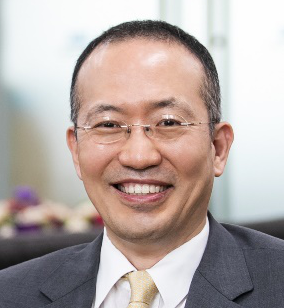
Heeseok Lee is Chair Professor of Strategy and IT at KAIST (Korea Advanced Institute of Science and Technology), Seoul, Korea. He is now directing Digital Innovation Research Center. He was the formal Dean of the Graduate School of Information and Media Management. He has also served as the Chair of Executive Program for more than ten years at KAIST. He is a frequently invited speaker for a talk about strategic implication of IT for leading universities and communities. He earned BA in Industrial Engineering from Seoul National University, MS in Industrial Engineering from KAIST, and Ph.D. in Management from the University of Arizona. Before joining KAIST, he taught at the University of Nebraska. Dr Lee has published extensively in the areas of IT and Knowledge Management in leading journals such as MISQ, JMIS, I&M, EJOR and IJITDM. He has won numerous awards for outstanding research, teaching and service. His recent research on IT impact on team innovation at knowledge-intensive firms was awarded the Best Research at HICSS. He also won the National Honorary Award in his efforts for enhancing e-government. He was a recipient of Herbert Simon Award in 2015. He has contributed to IAITQM, especially as a conference chair of ITQM Conference in Korea.
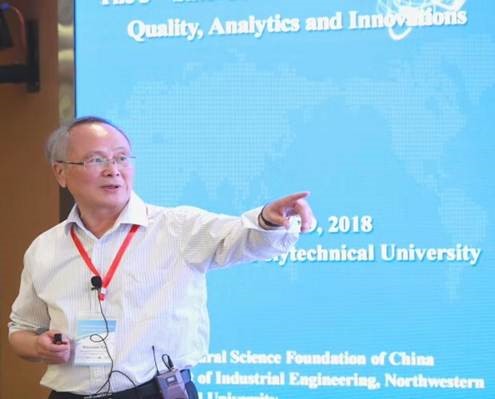
Weixuan Xu is one of the earliest domestic scholars to conduct academic communication with the international industrial engineering community and made important contributions to promoting the communication between China’s industrial engineering circles and international counterparts with his influence among international peers. He graduated from the Department of Mathematics, Sun Yat-Sen University in 1964, and studied for postgraduate under the tutelage of Professor Loo-Keng Hua in the Department of Mathematics, the University of Science and Technology of China from 1964 to 1968. He received a doctorate degree in OR/MS from the University of Maryland in 1984. He used to be the director of the Institute of Science and Technology Policy and Management Science of the Chinese Academy of Sciences, the chairman of the Chinese Society of Optimization, Overall Planning and Economic Mathematics, and also a senior judge of the Management Science Department of the National Natural Science Foundation of China. As the main participant, he was awarded the first prize (1988) and the second prize (1992) of the National Science and Technology Progress Award respectively, as well as a number of provincial and ministerial science and technology progress awards. In 1994, he was awarded the National Young and Middle-aged Expert with Outstanding Contributions.
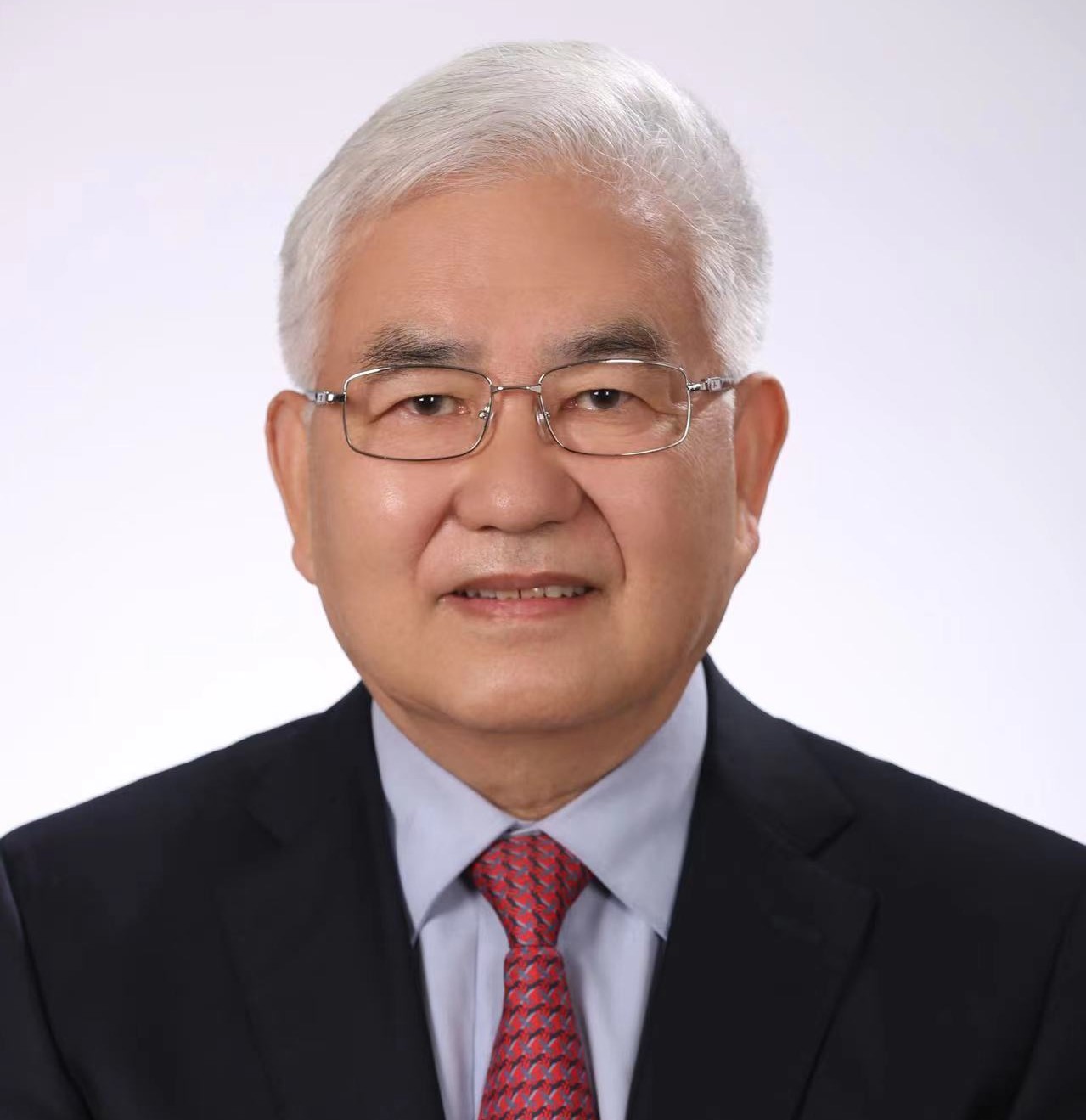
Weimin Zheng is a CAE member. He is currently a Professor at the Department of Computer Science and Technology, Tsinghua University. He was the President of China Computer Federation. Prof. Zheng has long been engaged in the research of High-Performance Computer architecture as well as parallel algorithms and systems. He led the establishment and application of the cluster architecture of high-performance computers in China, and participated in the development of the extremely large-scale weather forecast application based on the domestic Sunway TaihuLight, which won the ACM Gordon Bell Award in 2016. Special Allowance of the State Council, the State Science and Technology Progress Award (one 1st and two 2nd prizes), the State Technological Invention Award (2nd prize), and He Liang He Li Science and Technology Progress Award, Prof. Zheng and his collaborators published more than 500 papers and more than 10 books.

Jack Dongarra specializes in numerical algorithms in linear algebra, parallel computing, the use of advanced computer architectures, programming methodology, and tools for parallel computers. He holds appointments at the University of Manchester, Oak Ridge National Laboratory, and the University of Tennessee, where he founded the Innovative Computing Laboratory. In 2019 he received the ACM/SIAM Computational Science and Engineering Prize. In 2020 he received the IEEE-CS Computer Pioneer Award. He is a Fellow of the AAAS, ACM, IEEE, and SIAM; a foreign member of the British Royal Society and a member of the US National Academy of Engineering. Most recently, he received the 2021 ACM A.M. Turing Award for his pioneering contributions to numerical algorithms and software that have driven decades of extraordinary progress in computing performance and applications.
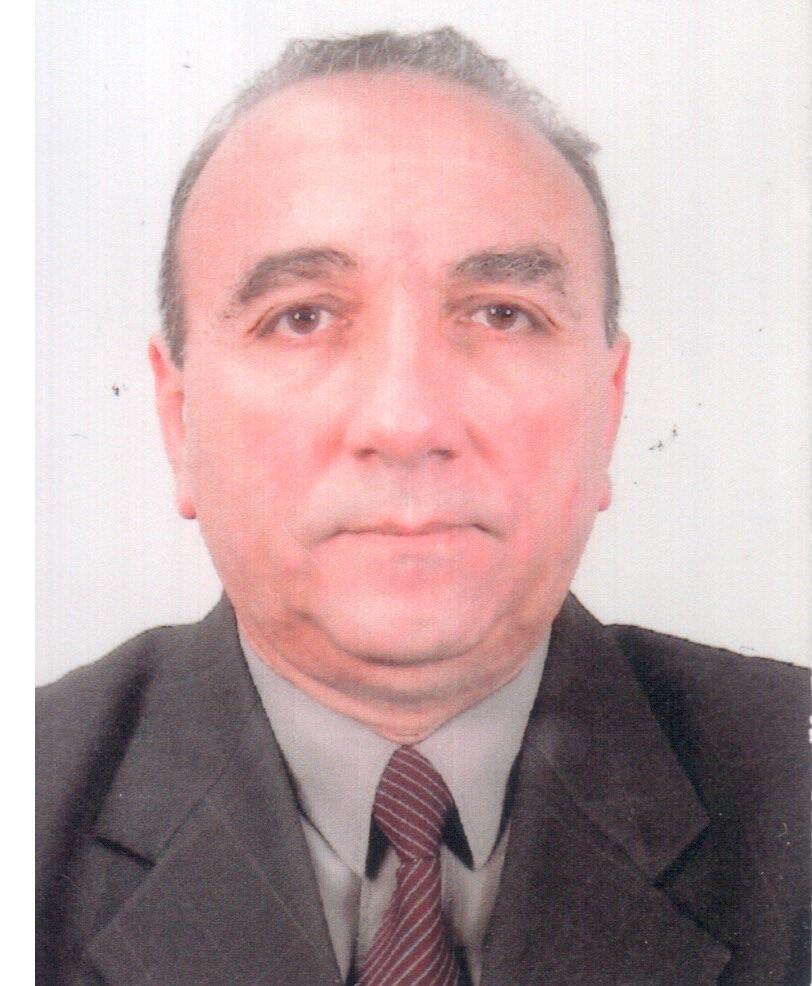
Svetozar Margenov is a corresponding member of the Bulgarian Academy of Sciences (BAS) and a professor in Computational Mathematics. He graduated from the Faculty of Mathematics and Informatics of the Sofia University “St. Kliment Ohridski”, a PhD and a Doctor of Science form the BAS. The main scientific achievements of prof. Margenov are in the field of numerical methods for partial differential equations, numerical solution of fractional diffusion problems, multilevel iterative methods for ill-conditioned linear systems, parallel methods and algorithms, and supercomputer applications. He has published over 200 scientific papers and two monographs. Svetozar Margenov is the director of the Institute of Information and Communication Technologies (IICT-BAS) and head of the Department of Scientific Computing. He is a co-founder of the Bulgarian section of SIAM and its chairman for the first two mandates. Prof. Margenov has made a great contribution to the development of the modern Bulgarian HPC infrastructure and a high level of expertise in HPC applications. He currently leads the Center of Excellence in Informatics and ICT, within which the last Bulgarian petascale supercomputer HEMUS was recently opened. Prof. Svetozar Margenov was awarded by the BAS with the badge of honor "Marin Drinov" on a ribbon.
Siwei Cheng Award in Quantitative Management
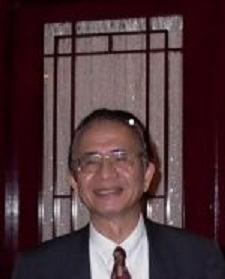
Cheng-Few Lee is a Distinguished Professor of Finance at Rutgers Business School, Rutgers University and was chairperson of the Department of Finance from 1988–1995. He has also served on the faculty of the University of Illinois (IBE Professor of Finance) and the University of Georgia. He has maintained strong academic and consulting ties across various regions and countries including Taiwan, Hong Kong, China, and the United States for the past three decades. He has been a consultant to many prominent groups including, the American Insurance Group, the World Bank, the United Nations and The Marmon Group Inc., Wintek Corporation and Polaris Financial Group, etc.

Daniel Berg received his B.S. in Chemistry and Physics from the City College of New York (C.C.N.Y.) and his M.S. and Ph.D. in Physical Chemistry from Yale. He was employed by Westinghouse Electric in a variety of technical/managerial positions including Technical Director. He was Dean and Provost at Carnegie Mellon University (CMU) as well as Provost and President at Rensselaer Polytechnic Institute (RPI) and Institute Professor of Science and Technology. He is a Distinguished Research Professor of Engineering at the University of Miami. He is a Life Fellow of the Institute of Electrical and Electronic Engineers, a Fellow of INFORMS, and a Fellow of the American Association for the Advancement of Science. He is a member of the National Academy of Engineering. He serves as the American Editor of the "International Journal of Services Technology and Management".
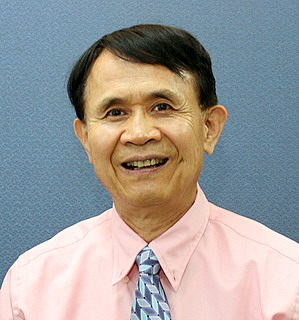
Po-Lung Yu is the Distinguished Professor (Emeritus) of University of Kansas (KU), and Distinguished Professor for Life of National Chiao-Tung University (NCTU). He earned BA—International Trade (1963) from National Taiwan University, and Ph.D.—Operations Research and Industrial Engineering (1969) from the Johns Hopkins University.
From 1977 to 2004, Dr. Yu held an endowed Chair as the Carl A. Scupin Distinguished Professor of the University of Kansas. He taught at NCTU from 1999 to 2011. Previously he taught at the University of Rochester (1969-73) and the University of Texas at Austin (1973-77). He won awards for outstanding research and for teaching.
Dr. Yu, the initiator of habitual domains theory, competence set analysis and second order games, has published, in English and Chinese, 19 books and over 190 professional articles over multiple criteria decision making, mathematical programming, differential games and optimal control theory, and various application problems including investment models, efficient market, marketing, automobile safety and energy policy, corporate acquisition and merger analysis, aside from what he initiated. He is recognized as a remarkable thinker, scholar, teacher and advisor. He has given many keynote addresses around the world, academically and publicly. His audiences of habitual domains and related topics sometimes exceeded thousands of people.

Dr. Fred Glover is an Emeritus professor at the University of Colorado at Boulder where he holds the title of Distinguished Professor in the School of Engineering and Applied Science and the Leeds School of Business. He serves as the Chief Technology Officer in charge of algorithmic design and strategic planning initiatives for OptTek Systems, Inc., in Boulder, Colorado. Dr. Glover is widely known for his work in the applications of computer decision support systems, including industrial planning, financial analysis, systems design, energy and natural resources planning, logistics, transportation and large-scale allocation models. He has authored or co-authored more than 470 published articles and eight books in the fields of mathematical optimization, computer science and artificial intelligence.
Dr. Glover is the recipient of the highest honor of the Institute of Operations Research and Management Science, the von Neumann Theory Prize, and is an elected member of the National Academy of Engineering. He has also received numerous other awards and honorary fellowships from organizations around the world.

Milan Zeleny is Professor (Emer.) of Management Systems at Fordham University. His previous appointments were at Columbia University, Univ. of So. Carolina, Copenhagen Sch. of Economics, European Inst. for Advanced Studies, and U. of Rochester. Major visiting appointments include Beijing, Xi′an, Tianjin, Taipei, Shanghai, Christchurch, Pretoria, Tokyo, Naples, Padua, Rome, Milan, Rio de Janeiro, Perth, Kanpur, Melbourne, Zlín, Turku, Helsinki, etc. He has become a global actor through his ZET – Foundation. Zeleny’s scientific interests have always been always multi- and trans-disciplinary. His most significant contributions are in the areas of multiple criteria decision making (MCDM), autopoiesis, fuzzy sets, artificial life, synthetic biology, multiobjective programming, games with multiple payoffs, De novo programming, conflict dissolution, Bata management system, tradeoffs-free economics, evolutionary economics, strategy as action, economic transformation and metamorphosis, etc. Naturally, his publications, although well above six hundred, are not rooted in traditional specialization, but in an ever-expanding array of interactions of mutually synergetic and merging areas of interest.
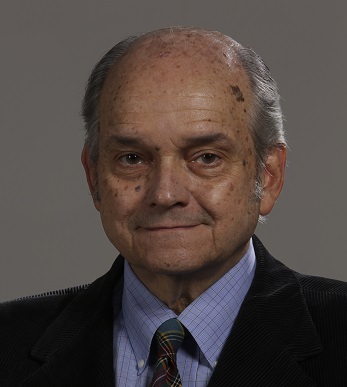
Luiz F. Autran M. Gomes has a PhD degree from the University of California at Berkeley and an MSc from Michigan State University. He has been full professor of Management Science in the Ibmec School of Business and Economics, in Rio de Janeiro, since 2000. He has worked as a researcher, a teacher, an academic advisor, and a consultant in the field of Multi-Criteria Decision Analysis since the 70s. He has advised about 160 theses and dissertations dealing with MCDA mostly. He was president of the Brazilian Society of Operations Research (1999-2003). He is a member of the National Academy of Engineering (Brazil) and also of INFORMS.

Shu-Cherng Fang holds the Walter Clark Chair Professorship in Industrial & Systems Engineering and Alumni Distinguished Graduate Professorship at North Carolina State University, USA. He has been University Chair Professor of Tsinghua University (Beijing) and Fudan University (Shanghai), Honorary University Professor of Northeast University (Shenyang) and Shanghai University (Shanghai), Graduate University Advisory Professor of the Chinese Academy of Sciences (Beijing), Honorary University Chair Professor of National Chiao Tung University (Taiwn) and Honorary IEEM Chair Professor of National Tsinghua University (Taiwan). Before joining NC State, Professor Fang was Supervisor at AT&T Bell Labs and Department Manager at the Corporate Headquarters of AT&T Technologies.
Professor Fang has published over two hundred refereed journal articles. He authored the books of Linear Optimization and Extensions: Theory and Algorithms (Prentice Hall 1993, with S. C. Puthenpura), Entropy Optimization and Mathematical Programming (Kluwer Academic 1997, with J.R. Rajasekera and H.-S. Tsao), and Linear Conic Optimization (Science Publisher 2013, with Wenxun Xing). He is currently serving on 22 editorial boards of scientific journals in the general area of Operations Research, Industrial/Systems Engineering and Management Science. He is also the Editor-in-Chief of Fuzzy Optimization and Decision Making.
Professor Fang has won many awards and has been listed in several major biographic references. His research interests include Nonlinear Programming, Fuzzy Optimization and Decision Making, Soft Computing, and Logistics and Supply Chain Management.

Felisa Córdova, Graduated Electrical Engineer at the University of Santiago de Chile USACH. She obtained the Diplome d´Etudes Approfondis in Electronics and the degree of Docteur Ingénieur at the University of Paris XI, France. Actually, she is professor and Director of the School of Engineering at the Faculty of Engineering, University Finis Terrae UFT, Santiago, Chile. She was professor, Academic Vice Rector and Director of the Industrial Engineering Department, at the Faculty of Engineering, University of Santiago de Chile USACH. She was also Director of the Master of Science Engineering Program and Header of Management Area of the Industrial Engineering Department of, at the Faculty of Physical and Mathematical Sciences at University of Chile. Her main research interest is in Business Strategy, Operations Management, and Knowledge Management. She has participated in several national and international research projects in the fields of Robotics, AGV and Virtual Operation Systems in underground mining, also in ports. She has published many papers in conference proceedings and international indexed journals in the area of Robotics, Knowledge and Operation Management, and Neuromanagement. She has participated in the organization of national and international Conferences (ACCA, LCA, LCR, SEPROSUL, ICPR, CESA). She was past-president of the Chilean Association of Automatic Control ACCA and she was national councilor, President of the Education Committee and past Vice President of the College of Engineers of Chile. She participated as an institutional accreditation evaluator at the CNA, Chile and also in the CEAB accreditation (Washington Accord) to engineering programs, Canada. She was member of the accreditation board and now she is member of the Directory of Acredita CI.

Murat Köksalan was at the Industrial Engineering Department of Middle East Technical University during most of his career. He held visiting professor positions at Georgetown University, Purdue University, University of Buffalo, and Aalto University. Currently, he is at the Ross School of Business, University of Michigan, Ann Arbor. The Young Researcher Award of the Turkish Scientific and Technological Council, The Gold Medal of the International Society on Multiple Criteria Decision Making (MCDM), and The Science Award of the Parlar Foundation are among the awards he has received. He won the INFORMS Case Competition several times with different co-authors. He is the founding president of the INFORMS Section on MCDM and the past President of the International Society on MCDM. His research interests include methodology and applications of MCDM, multi-objective combinatorial optimization, and heuristic search.

Jyrki Wallenius is emeritus professor at Aalto University School of Business (Aalto BIZ), Department of Information and Service Management. He was appointed professor of Management Science at former Helsinki School of Economics (HSE) in 1998. During his career at Aalto BIZ and HSE, he served in many roles: as professor, MBA director, doctoral program director, department head, vice rector, and dean. Prior to joining the Helsinki School of Economics, Wallenius served as Associate Professor and department head at the University of Jyväskylä. He has spent several sabbaticals in the United States, including Purdue University, Texas A&M University, and Arizona State University. His research interests are in Multiple Criteria Decision Making (MCDM), in particular in multi-objective optimization and decision support. Wallenius has published widely in many leading journals, including Management Science, Operations Research, and European Journal of Operational Research. He is former President of the International Society on Multiple Criteria Decision Making and chair of its awards committee, past editor-in-chief of the European Journal of Operational Research, and a co-founder of INFORMS Section on MCDM. For over a decade, Wallenius has served on several boards of Finnish foundations and Finnish WWF (council). Moreover, he served on Finnish IIASA Committee for several years. Wallenius is the recipient of numerous awards, both international and domestic. Among the awards are the Edgeworth-Pareto award of the International Society on Multiple Criteria Decision Making, and the honorary President of the Finnish Operations Research Society.

George Metakides born in Thessaloniki, Greece, George Metakides received his Ph.D. in Mathematical Logic from Cornell University in 1971. He is currently visiting professor at the Universities of Southampton and Vienna, Honorary President of the Digital Enlightenment Forum, Board Member of Digital Humanism and Advisor to several international organizations. He has contributed to the establishment of international institutions (including the launch of the World Wide Web consortium in 1993), has received a number of awards and honorary degrees and is a corresponding member of several National Academies. He is involved in the analysis of the economic, political and social impact of digitization , and related regulatory issues and the promotion of international cooperation towards a digital ecosystem respecting shared human values.
Herbert Simon Award
To promote the journal as a flag journal in the field of Information Technology and Decision Making (ITDM), World Scientific Co. has proud to announce the establishment of the Herbert Simon Award for Outstanding Contribution in Information Technology and Decision Making to be given annually to the author(s) of the best paper published in journal of Information Technology and Decision Making (IJITDM) (effective from 2011). The recipient of the award will be selected by the Editor-in-Chief in consultation with the award committee formed by the members of the Editorial Board.
The selection criteria of Herbert Simon Award are:
- Significance of the paper to the field of ITDM
- The extent to which the paper is interesting
- Records of academic citations
- Theoretical impact to ITDM
- Use of appropriate methodological rigor
- Clarity of writing and/or presentation
After evaluating 30 candidate papers which published in IJITDM during 2002-2010, the award committee announces that the 2011 Herbert Simon Award for Outstanding Contribution in Information Technology and Decision Making is given to paper “THE POSSIBILITY OF GROUP WELFARE FUNCTIONS” by Thomas L. Saaty and Luis G. Vargas, International Journal of Information Technology & Decision Making, 2005, vol. 04, issue 02, pages 167-176. Warm congratulations to Prof. Thomas L. Saaty and Prof. Luis G. Vargas!
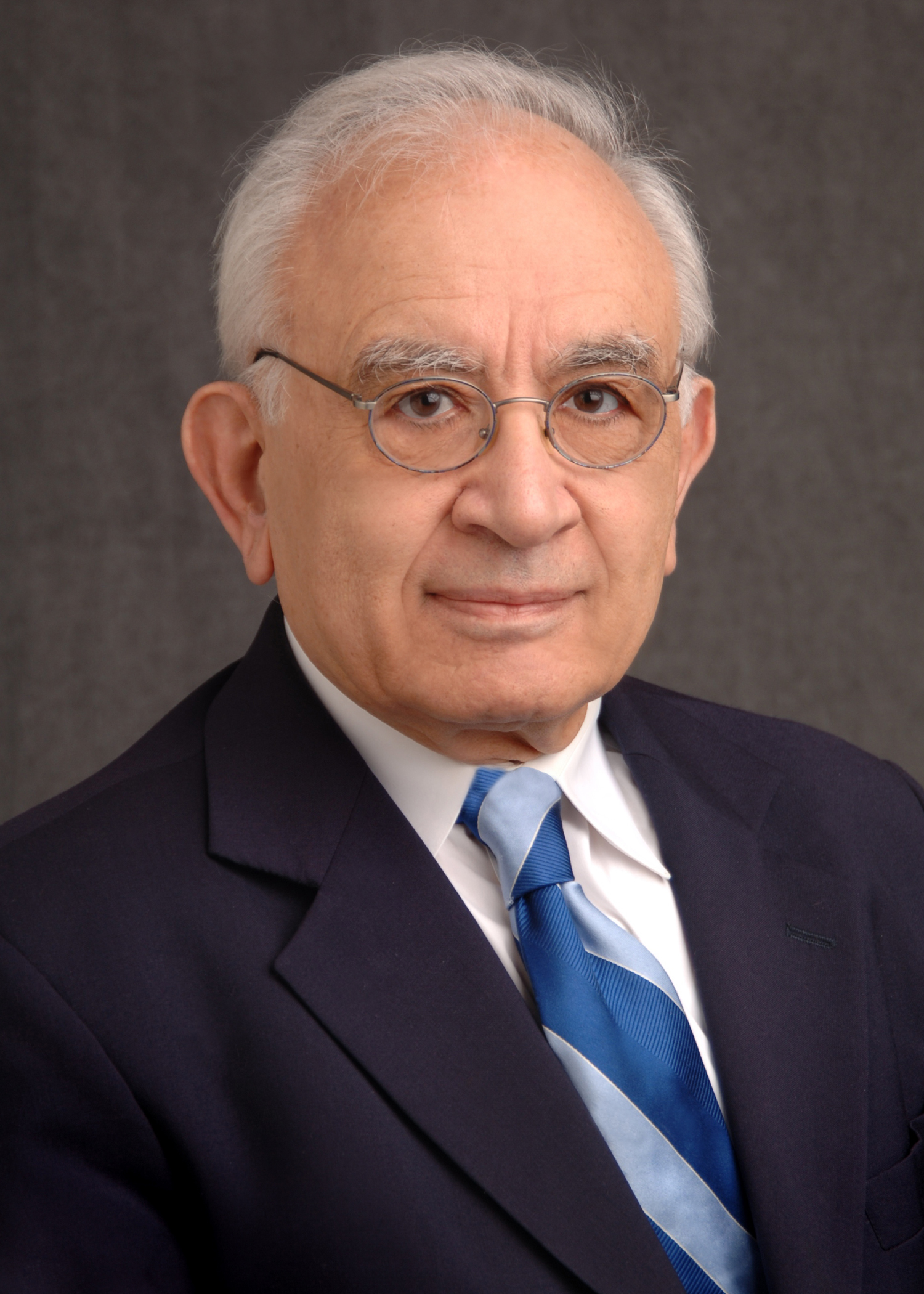
Thomas Saaty, the co-recipient of the 2011 Herbert Simon Award for Outstanding Contribution in Information Technology and Decision Making, is Chair of Distinguished University Professor, Katz Graduate School of Business, University of Pittsburgh, Ph.D. Mathematics Yale University, member of the National Academy of Engineering. On October 2008, he was awarded the Impact Prize by INFORMS for his work on the Analytic Hierarchy Process. In 2000 he received the gold medal from the International Society for Multicriteria Decision Making. In 2011 he was awarded, in a ceremony with ancient roots, the Doktor Honoris Causa degree by Jagiellonian University in Krakow, Poland. In 1977 he received an award from the Institute of Management Sciences, College on the Practice of Management Science for his contributions and leadership in one of the best applied studies of the year: The Sudan Transport Plan. Previously, he was professor at the Wharton School, University of Pennsylvania. Before that he worked on nuclear arms reduction negotiations with the Soviets in Geneva at the Arms Control and Disarmament Agency in Department of State, in Washington. He developed the Analytic Hierarchy Process (AHP) for decision-making and its generalization to feedback, the Analytic Network Process (ANP). Published 43 books and more than 300 papers; latest books with Professor Kirti Peniwati, of Jakarta, Indonesia on Group Decision Making: Drawing out and Reconciling Differences: Problem Solving & Decision Making; The Brain: Unraveling the Mystery of How It Works; Creative Thinking and Problem Solving. He was awarded the L.R. Ford prize in mathematics for a comprehensive paper on a long standing unsolved problem in mathematics for over one hundred years “Thirteen Colorful Variations on Guthrie’s Four Color Conjecture” which later became the basis of a book called “The Four Color Problem” published by McGraw Hill, and now by Dover Publications. The problem was solved soon after by three people who collaborated to work our more than a thousand possible cases on the computer. He has been involved extensively in consulting on decision making with industries and governments.

Luis Vargas, the co-recipient of the 2011 Herbert Simon Award for Outstanding Contribution in Information Technology and Decision Making, was also the recipient of the Juan March Foundation Scholarship, Madrid, Spain, to the University of Pennsylvania in 1976-78. He won the Outstanding Professor of the Year Award in the Joseph M. Katz Graduate School of Business in 1984. He was the coordinator of the Quantitative Interest Group from 1987 to 1991; the coordinator of the Artificial Intelligence Interest Group from 1991 to 1994; and chair of the Second International Symposium on the Analytic Hierarchy Process, held in Pittsburgh August 11-14, 1991, at the Joseph M. Katz Graduate School of Business. Area Director of Decision, Operations and Information Technology 2009-2012. Luis Vargas has focused his research on decision theory, practical applications of the Analytic Hierarchy Process (AHP), artificial intelligence in manufacturing, the use of artificial intelligence techniques for scheduling, measurement of resource utilization, group decision making, Bayesian networks, and forecasting.
After evaluating 35 candidate papers which published in IJITDM during 2002-2011, the award committee announces that the 2012 Herbert Simon Award for Outstanding Contribution in Information Technology and Decision Making is given to paper “Agent-Oriented Metasynthetic Engineering for Decision Making” by Long-bin Cao and Ruwei Dai, International Journal of Information Technology & Decision Making, 2003, vol. 02, issue 02, pages 197-215. Warm congratulations to Prof. Ruwei Dai and Prof. Long-bin Cao!
Ruwei Dai, born in Kunming, China, December 1932, is Professor and a Senior Research Fellow of the Institute of Automation, Chinese Academy of Sciences. Prof. Ruwei Dai started his undergraduate studies in 1951 at Tsinghua University and later received a B.S. degree in Mathematics Science from Peking University in 1955. After completing his studies, Prof. Dai joined the research group led by Dr. Tsien Qian as an Assistant Research Scientist at the Institute of Mechanics, Chinese Academy of Sciences. During the time, Prof. Dai translated Dr. Tsien Qian's classical work “Engineering Cybernetics", which was written in English, into Chinese. The Chinese version of the book was published in 1958. In 1980, as one of the few visiting scholars founded by the Chinese government for the first time, Prof. Dai began to work with Dr. King-Sun Fu’s Pattern Recognition group at Purdue University as a research fellow. Prof. Dai was elected member of Chinese Academy of Sciences in 1991 in recognition of his distinguished and continuing achievements in original research. Prof. Dai previously served as member of the Board of Directors of Chinese Academy of Sciences, Deputy Director of the Department of Information Science and Technology, and Board Member of Ethics Committee.
Prof. Dai is best known for his many seminal contributions to the theory and implementation of Pattern Recognition, Automatic Control, System Sciences, Noetic Sciences, and Artificial Intelligence. He is the first person to introduce Pattern Recognition into China. He brought up with Semantic-Syntactic Pattern Recognition in early 70s, which paved the way of the development of the core technology of "Han Wang Hand Writing Recognition". In the early 90s, Prof. Dai pioneered in cross-disciplinary research and frontier knowledge integration by utilizing artificial intelligence technology. Prof. Dai has published numerous books and over 200 papers on varied topics in his research. For the past 40 years, he has supervised hundreds of Ph.D. and Master Degree students during their studies and researches. Most recently, Prof. Dai has served as the Chief Editor of "Pattern Recognition and Artificial Intelligence" and "Complex Systems and Complexity Science".
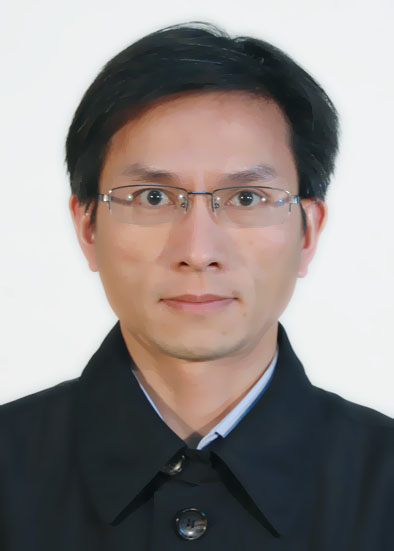
Longbing Cao is a Professor of Information Technology at the University of Technology Sydney (UTS). He got one PhD in Intelligent Sciences and another in Computing Science. He is the Founding Director of Advanced Analytics Institute at UTS and a core member of the Data Sciences and Knowledge Discovery Lab at the Centre for Quantum Computation and Intelligent Systems at the Faculty of Engineering and IT, UTS. He is also the Research Leader of the Data Mining Program at the Australian Capital Markets Cooperative Research Centre, the Chair of IEEE Task Force on Behavior and Social Informatics and of IEEE Task Force on Educational Data Mining. He is a Senior Member of IEEE, SMC Society and Computer Society. He serves as associate editor and guest editor on many journals, as conference co-chair of PAKDD13 and ADMA13, and program co-chair or vice-chair of PAKDD, ICDM, IAT, ADMA etc., and program committee member on over 80 conferences including KDD, ICDM and AAMAS. He joined UTS in 2005 after he served as an editor, marketing strategist and then Chief Technical Officer in China. Longbing initiated and is leading research on behavior informatics, agent mining, multi-agent systems, domain driven data mining, and open complex intelligent systems. He is now working with around 30 team members including PhD students, research masters and fellows. Longbing created several special interest groups and IEEE Task Forces to promote the above research on behavior and social informatics, agent mining, domain driven data mining, financial data mining, social security data mining, and educational data mining. He has published 2 monographs, 4 edited books and 13 proceedings, 11 book chapters, and over 170 journal/conference publications including IJCAI, KDD, ICDE, ICDM, AAMAS and IEEE Transactions in the above areas. He has attracted research grants over AUD$6 millions in the last 7 years.
After evaluating 50 candidate papers which published in IJITDM during 2002-2012, the award committee announces that the 2013 Herbert Simon Award for Outstanding Contribution in Information Technology and Decision Making is given to paper “New Optimization Models for Data Mining” by Fred W. Glover and Gary Kochenberger, International Journal of Information Technology & Decision Making, 2006, Vol. 05, Issue 04, pages 605-609. Warm congratulations to Prof. Fred W. Glover and Gary Kochenberger!

Dr. Fred Glover is an Emeritus professor at the University of Colorado at Boulder where he holds the title of Distinguished Professor in the School of Engineering and Applied Science and the Leeds School of Business. He serves as the Chief Technology Officer in charge of algorithmic design and strategic planning initiatives for OptTek Systems, Inc., in Boulder, Colorado. Dr. Glover is widely known for his work in the applications of computer decision support systems, including industrial planning, financial analysis, systems design, energy and natural resources planning, logistics, transportation and large-scale allocation models. He has authored or co-authored more than 470 published articles and eight books in the fields of mathematical optimization, computer science and artificial intelligence.
Dr. Glover is the recipient of the highest honor of the Institute of Operations Research and Management Science, the von Neumann Theory Prize, and is an elected member of the National Academy of Engineering. He has also received numerous other awards and honorary fellowships from organizations around the world.

Dr. Gary A. Kochenberger is a professor of Business Analytics at the University of Colorado at Denver where he is a co-director of the Business Analytics graduate program. He is known for his research on applied optimization addressing important issues in combinatorial optimization, nonlinear programming, resource allocation, pattern classification, data mining, and related areas. He has co-authored three books and more than seventy refereed articles. Dr. Kochenberger has given invited presentations at national and international meetings in the U.S., Canada, China, Japan, and several venues in Europe. He has also served as principal investigator and supporting investigator on numerous grants.
In addition to his academic work, Dr. Kochenberger serves as a Senior Consultant for OptTek Systems, Inc., engaged in research into practical applications of optimization and simulation applied to portfolio analysis, workforce planning, and a variety of other applications of operations research.
After evaluating 350 candidate papers which published in IJITDM during 2002-2013, the award committee announces that the 2014 Herbert Simon Award for Outstanding Contribution in Information Technology and Decision Making is given to Paper “A Consensus Model for Group Decision Making Problems with Unbalanced Fuzzy Linguistic Information” by F. J. Cabrerizo, S. Alonso and E. Herrera-Viedma, International Journal of Information Technology & Decision Making, 2009, Vol. 08, Issue 01, pages 109-131. Warm congratulations to Prof. Herrera-Viedma, Cabrerizo and S. Alonso!



After evaluating 350 candidate papers which published in IJITDM during 2002-2014, the award committee announces that the 2015 Herbert Simon Award for Outstanding Contribution in Information Technology and Decision Making is given to Paper “STRATEGIC AGENT BASED WEB SYSTEM DEVELOPMENT METHODOLOGY” by J. Lee and H. Lee, International Journal of Information Technology & Decision Making, 2008, Vol. 07, Issue 02, pages 309-337. Warm congratulations to Prof. Heeseok Lee and Jongwon Lee!
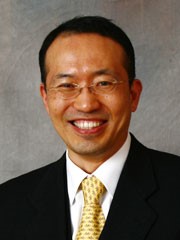
Heeseok Lee is the Dean of the Graduate School of Information and Media Management at KAIST (Korea Advanced Institute of Science and Technology), Seoul, Korea. Dr Lee has been the Director of Knowledge Management Research Center at KAIST and leads IT and Knowledge Management research. He has also served as the Chair of Executive Program for more than ten years at KAIST. He is a frequently invited speaker for a talk about strategic implication of IT for leading universities and communities. He earned BA in Industrial Engineering from Seoul National University, MS in Industrial Engineering from KAIST, and Ph.D. in Business Administration from the University of Arizona. Before joining KAIST, he taught at the University of Nebraska at Omaha. Dr Lee has published extensively in the areas of IT and Knowledge Management. His research papers have appeared in journals such as International Journal of Information Technology and Decision Making, Journal of Management Information Systems, Annals of Operations Research, European Journal of Operational Research, Information Systems, Management Information Systems Quarterly, etc. His recent research on IT impact on team innovation at knowledge-intensive firms was awarded the Best Research at HICSS 2014. He won numerous awards for outstanding research, teaching and service. He also won the National Honorary Award in his efforts for enhancing e-government. He was a conference chair of ITQM 2016.

Jongwon Lee is a professor and the founding dean of the Graduate School of Management of Technology at Hoseo University. He was responsible for the initiation (starting in 2015), development and establishment (in 2016) of the Graduate School. He was a co-founder of Cyworld, one of the successful social media services in the world. He was a marketing director of Hanaro Telecom (now known as SK Broadband) which provided the world’s first successful ADSL service. He has many academic and practical experiences in commercialization of information technology. He also has experiences in advising big organizations such as Blue house (Presidential Secretariats in Korea), Ministry of Public Administration and Security, Ministry of Culture, Sports and Tourism, Ministry of Health and Human Services, Korea Telecom, and Posco.
He has served as an associate editor for some journals and as conference organizing chair of ITQM 2016.
His research is focused on finding customer requirement using information technology. He has attracted research and education grants over USD 3.6 millions in the last 5 years.
Among 400 candidate papers which published in IJITDM during 2002-2016, the award committee announces that the 2016 Herbert Simon Award for Outstanding Contribution in Information Technology and Decision Making is given to Paper “A Descriptive Framework for The Field of Data Mining And Knowledge Discovery” by Ying Peng, Gang Kou, Yong Shi and Zhengxin Chen, International Journal of Information Technology & Decision Making, 2008, Vol. 7, Issue 4, 639-682. Warm congratulations to all four authors!

Yi Peng received the B.S. degree in management information systems from Sichuan University, China, in 1997, and the M.S. degree in management information systems and the PhD degree in information technology from the University of Nebraska at Omaha, Omaha, NE, USA, in 2007. She was an Assistant Professor from 2007 to 2011, and Professor since 2011 with the School of Management and Economics, University of Electronic Science and Technology of China. Her current research interests include data mining, multiple criteria decision making, and data mining applications. Prof. Yi Peng has been selected to the list of Highly Cited Researchers 2016 in the field of Computer Science published by Clarivate Analytics (formerly Thomson Reuters).

Dr. Gang Kou is a Distinguished Professor of Chang Jiang Scholars Program and executive dean of School of Business Administration, Southwestern University of Finance and Economics, China, and managing editor of International Journal of Information Technology & Decision Making. Previously, he was a research scientist in Thomson Co., R&D. He received his Ph.D. in Information Technology from the College of Information Science & Technology, University of Nebraska at Omaha; got his Master degree in Department of Computer Science, University of Nebraska at Omaha; and B.S. degree in Department of Physics, Tsinghua University, Beijing, China. His research interests are in Data mining, Multiple Criteria Decision Making and Information management. He has published more than eighty papers in various peer-reviewed journals. Gang Kou is listed as the Highly Cited Researcher (Computer Science) by Clarivate Analytics (Web of Science).

Yong Shi, serves as the Director of the Research Center on Fictitious Economy & Data Science, Chinese Academy of Sciences and the Director of the Key Lab of Big Data Mining and Knowledge Management, Chinese Academy of Sciences. He has been Union Pacific Chair of Information Science and Technology, University of Nebraska at Omaha, USA. Dr. Shi's research interests include business intelligence, data mining, and multiple criteria decision making. He has published more than 23 books, over 300 papers in various journals and numerous conferences/proceedings papers. He is the Editor-in-Chief of International Journal of Information Technology and Decision Making (SCI), Editor-in-Chief of Annals of Data Science (Springer) and a member of Editorial Board for a number of academic journals. Dr. Shi has received many distinguished awards including the Georg Cantor Award of the International Society on Multiple Criteria Decision Making (MCDM), 2009; Fudan Prize of Distinguished Contribution in Management, Fudan Premium Fund of Management, China, 2009; Outstanding Young Scientist Award, National Natural Science Foundation of China, 2001; and Speaker of Distinguished Visitors Program (DVP) for 1997-2000, IEEE Computer Society. He has consulted or worked on business projects for a number of international companies in data mining and knowledge management.

Dr. Zhengxin Chen is a professor at Department of Computer Science, College of Information Science and Technology, University of Nebraska at Omaha. He received his Ph.D. and M.S. degrees in Computer Science from Louisiana State University, and B.S. degree in Mathematics from East China Normal University. His research interests include data mining, database management, and intelligent information systems, and he has numerous publications in these and related research areas.
Among 450 candidate papers which published in IJITDM during 2002-2016, the award committee announces that the 2017 Herbert Simon Award for Outstanding Contribution in Information Technology and Decision Making is given to Paper “A Hybrid Method for Pythagorean Fuzzy Multiple-Criteria Decision Making” by Shouzhen Zeng, Jianping Chen and Xingsen Li, International Journal of Information Technology & Decision Making, 2016, Vol. 15, Issue 2, 403-422. Warm congratulations to all three authors!
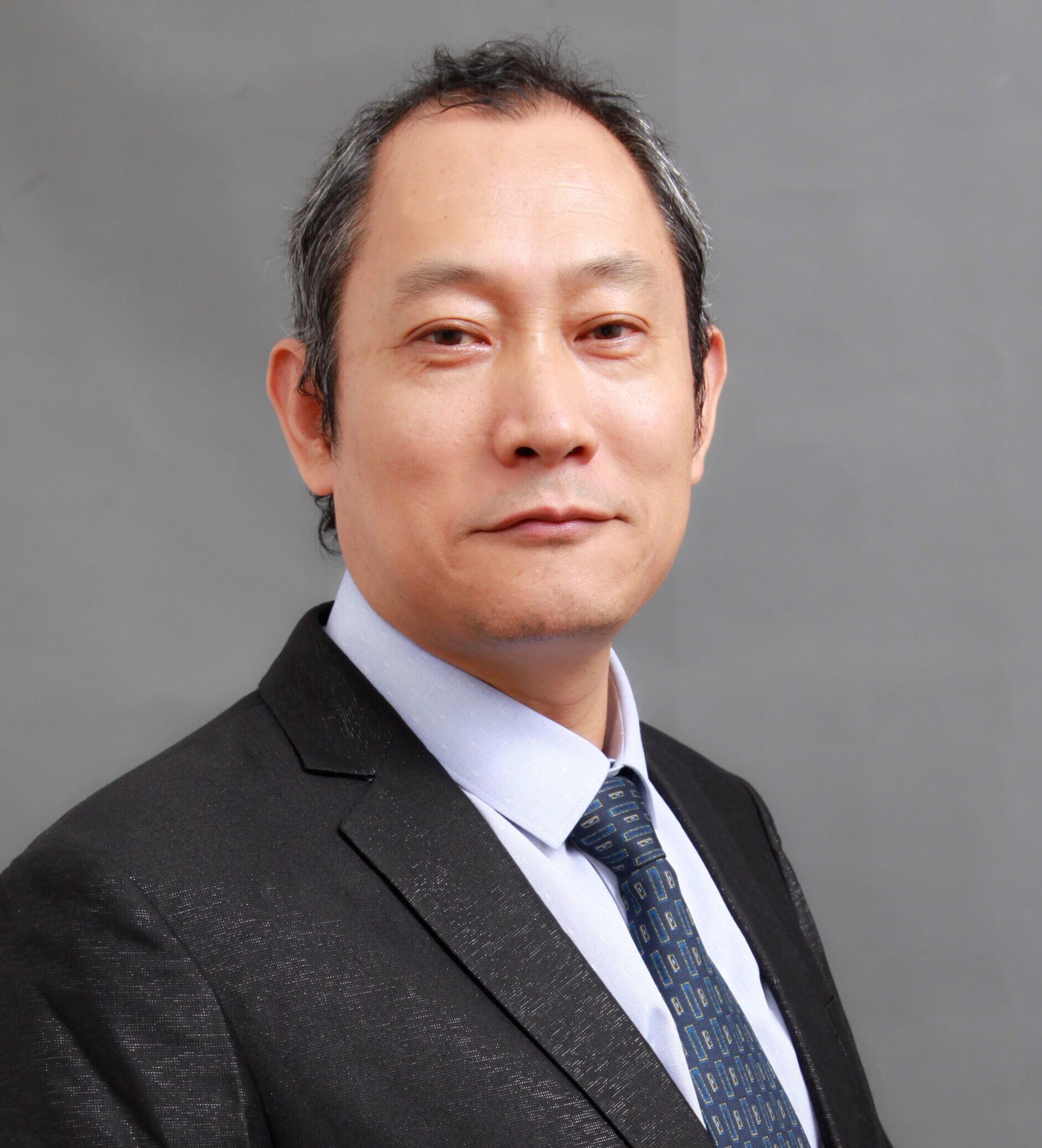
Xingsen Li is graduated from School of Management, Graduate University of the Chinese Academy of Sciences and achieved his doctorate degree in management science and engineering in 2008. He has been the secretary-general of Extenics Specialized Committee, China Association of Artificial Intelligence. His research interests include Extenics, knowledge management and Intelligent innovation. He has published 4 books and more than 70 papers in various Chinese journals and international journals/conferences proceedings, including ITQM best paper and ESI highly cited paper. He wins natural science awards of Zhejiang province and teaching achievement prizes at Zhejiang University.
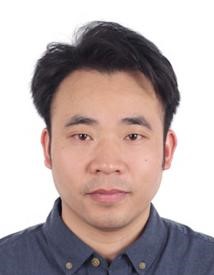
Shouzhen Zeng is associated professor of Ningbo University, China. He received a PhD degree in statistics from Zhejiang Gongshang University in 2013. Until now he has published more than 40 papers in journals, books and conference proceedings, such as 《European Journal of Operational Research》,《Renewable and Sustainable Energy Reviews》,《Applied Mathematical Modelling》,《International Journal of Information Technology & Decision Making》,《Technological and Economic Development of Economy》,《Knowledge-Based Systems》 and 《Group Decision and Negotiation》. His main research fields are information fusion, intelligent computing, aggregation operators, decision making, supply chain management and uncertainty.
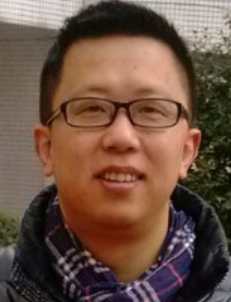
Jianping Chen, Ph.D. in business administration in 2014, lecturer at the Business School , Ningbo Institute of Technology(NIT), Zhejiang University , China. He is the director of the Innovation and Entrepreneurship Research Center of NIT, committee member of Extenics Specialized Committee, China Association of Artificial Intelligence. His major includes of technological innovation, stakeholders and extension decision making.

Carlos A. Bana e Costa PhD, Systems Engineering /1193, IST), former Centennial Professor of Decision Sciences (London School of Economics, Operational Research/Management Dept.; currently Professor of Decision and Information (University of Lisbon, IST/Engineering and Management Dpt.); founder of the Center of Management Studies of IST and of BANA Consulting Ltd. Co-author of the MACBETH (Measuring Attractiveness by a Categorical Based Evaluation Technique), PROBE (Portfolio Robustness Evaluation) and CVM (Collaborative Value Modelling approaches.

Jean-Claude Vansnick Ph.D. in Mathematics (Free University of Brussels, 1973), From 1974, he worked at the Warocque School of Economics and Management of the University of Mons (UMONS) where he became former Professor and Head of the Department of Quantitative Methods. His research areas were Measurement Theory and Multicriteria Decision Making. Co-author of the MACBETH Approach. Since 2012, he is retired but is always active in the field of decision aid: he is now consultant for the Value Focused Consulting Ltd.

Jean-Marie De Corte, received his PhD in Mathematics in 2002 at the University of Mons (UMONS - Belgium). He is currently in charge of the mathematics courses at the Warocqué School of Economics and Management at UMONS. His research area is multi-criteria decision support. He is one of the 3 co-authors of the MACBETH approach and the developer of the M-MACBETH software, based on this approach.
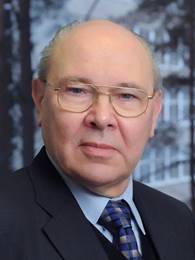
Edmundas Kazimieras Zavadskas PhD, DSc, Dr. habil., Dr H. C. multi, Prof. Chief researcher of Institute of Sustainable Construction, Faculty of Civil Engineering, Vilnius Gediminas Technical University, Lithuania. PhD in building structures (1973). Dr Sc. (1987) in building technology and management. Dr Habil (1993). Founder Vilnius Gediminas Technical University (1990). A member of the Lithuanian Academy of Science; A member of several foreign Academies of Sciences; Honorary doctor from Poznan, Saint-Petersburg, and Kyiv universities. A member of international organizations; a member of steering and program committees at many international conferences; Chairman of EURO Working Group ORSDCE; associate editor, guest editor, or editorial board member for 40 international journals (Computers-aided Civil and Infrastructure Engineering, Automation in Construction, Informatica, International Journal of Information Technology and Decision Making, Archives of Civil and Mechanical Engineering, International Journal of Fuzzy Systems, Symmetry, Sustainability, Applied Intelligence, Energy, Entropy and other); the author and co-author of more than 600 papers and many monographs in Lithuanian, English, German and Russian. Founding editor of journals "Technological and Economic Development of Economy", "Journal of Civil Engineering and Management“, “International Journal of Strategic Property Management“. He is a highly cited researcher in 2014, 2018, 2019, and 2020. His main research interests are multiple criteria decision-making, civil engineering, sustainable development, fuzzy multiple criteria decision-making.

Abbas Mardani received his MS degree and PhD degree in industrial management (operation and production management) in 2009 and 2015. In recent years, Abbas has published more than 130 high-quality papers related to operation management areas such as supply chain, logistics, quality management, sustainable development, green supply chain, sustainable supply chain, and others, in reputable journals indexed in the web of science, ABS, and ABCD lists. Abbas has also done several international research projects with various professors worldwide, and the results of these projects published in leading journals. Abbas is the editorial board of Applied Soft Computing, Technological and Economic Development of Economy, Operations Management Research, Asia-Pacific Journal of Business Administration, Energies, Journal of Operational Research for Engineering Management Studies (JOREMS) and others. Abbas has managed several special issues in several impact factor journals in Elsevier, Emerald, Springer, MDPI such as International Journal of Physical Distribution & Logistics Management, Applied Soft Computing, Technological and Economic Development of Economy, Technological Forecasting and Social Change, Computer and Industrial Engineering, Applied Intelligence (APIN), Journal of Enterprise Information Management, International Journal of Fuzzy System, International Journal of Environmental Research and Public Health, Sustainability, Symmetry, Entropy and others.

Zenonas Turskis, is a civil engineer and applied mathematics; 1993 PhD degree, Technical sciences; Habilitation procedure (2009), Technological Sciences, Civil Engineering (02T)
Particular areas on which could be researcher performed are:
— Sustainability in Architecture, design and construction
— Infrastructure and transport projects
— Life cycle analysis
— Innovations in construction and management
— Decision support models to solve above mentioned (not only) problems
— Multi-criteria decision-making and support
— Group decision making.
He is Editor-in-chief "Technological and Economic Development of Economy”; Member of the editorial boards “International Journal of Information Technology & Decision Making; Mathematics; "International Journal of Computers Communications & Control“; “Journal of Construction Engineering”; "The Open Transportation Journal"; and others. A member of the awards committee "International Academy of Information Technology and Quantitative Management "(IAITQM); Academy founder, (2012). He is a highly cited researcher in 2019 and 2020.
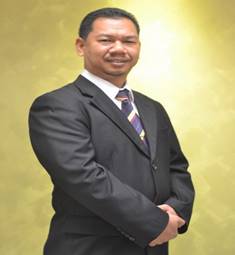
Ahmad Jusoh is the associate professor (PhD) at the UTM Azman Hashim International Business School (AHIBS); Universiti Teknologi Malaysia (UTM). He received his Bachelor's Degree in Technology Management from Universiti Teknologi Malaysia (UTM), his Master's Degree in Science (Quality and Productivity Improvement) from Universiti Kebangsaan Malaysia (UKM) and his PhD in Quality Management from Universiti Utara Malaysia (UUM). His current research interests focus on business statistics, production and operation management, system quality, Total Quality Management, engineering management and multiple criteria decision-making (MCDM).
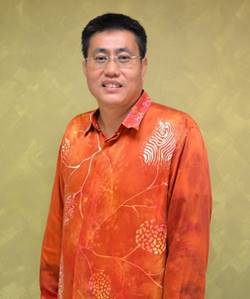
Khalil MD Noris Professor (PhD) at the Azman Hashim International Business School (AHIBS), Universiti Teknologi Malaysia (UTM). He received his PhD (Business Administration) at the Southern Illinois University in Carbondale, Illinois, USA. He received his Bachelor's Degree (Economics and Industrial Management) and Master's Degree (Public Management and Policy) from Carnegie Mellon in Pitts- burgh, Pennsylvania, USA. His current research interests focus on technology acceptance, strategic information system.
David L. Olson is the James & H.K. Stuart Professor and Chancellor's Professor at the University of Nebraska. He has published research in over 200 refereed journal articles, primarily on the topic of multiple objective decision-making, information technology, supply chain risk management, and data mining. He teaches in the management information systems, management science, and operations management areas. He has authored over 40 books, to include Decision Aids for Selection Problems, Introduction to Information Systems Project Management, Managerial Issues of Enterprise Resource Planning Systems, Supply Chain Risk Management, and Supply Chain Information Technology. Additionally, he has co-authored the books Introduction to Business Data Mining, Enterprise Risk Management, Advanced Data Mining Techniques, Enterprise Information Systems, Enterprise Risk Management Models, and Financial Enterprise Risk Management. He has served as associate editor of Service Business, Decision Support Systems, and Decision Sciences and co-editor in chief of International Journal of Services Sciences. He has made over 200 presentations at international and national conferences on research topics. He is a member of the Decision Sciences Institute, the Institute for Operations Research and Management Sciences, and the Multiple Criteria Decision Making Society. He was a Lowry Mays endowed Professor at Texas A&M University from 1999 to 2001. He was named the Raymond E. Miles Distinguished Scholar award for 2002, and was a James C. and Rhonda Seacrest Fellow from 2005 to 2006. He was named Best Enterprise Information Systems Educator by IFIP in 2006. He is a Fellow of the Decision Sciences Institute.
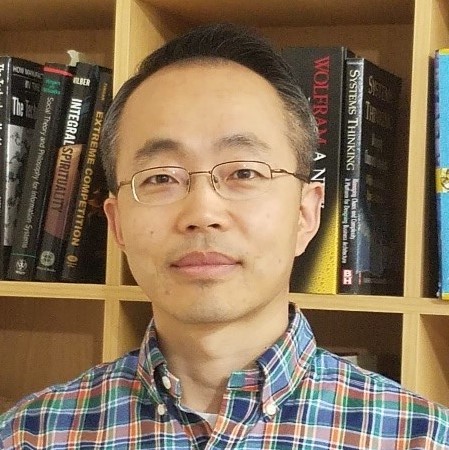
Bongsug (Kevin) Chae is the Jon Wefald Distinguished Chair in Business and Data Analytics at Kansas State University. He was formerly the Robert F. Hagans Professor in Information Systems. He researches data analytics, supply chain analytics, and social media analytics. He has made presentations in universities and global companies in several countries, primarily on the topic of data analytics and business intelligence, supply chain analytics, and computational social science. His research has been published in journals such as Business Horizon, Decision Sciences, Decision Support Systems, IEEE Transactions on Engineering Management, International Journal of Information Technology & Decision Making, International Journal of Information Management, IT Professional, International Journal of Production, Research, and International Journal of Production Economics. He is a recipient of such teaching and service awards as the Ralph Reitz Teaching Award, the Kansas State Bank Teaching Excellence Award, and the Graduate Students' Professor.
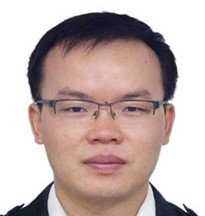
Huchang Liao is a Research Fellow at the Business School, Sichuan University, Chengdu, China. He received his PhD degree in Management Science and Engineering from the Shanghai Jiao Tong University, Shanghai, China, in 2015. He has published 4 monographs, and more than 340 peer-reviewed papers, many in high-quality international journals including Decision Analysis, European Journal of Operational Research, Omega, IEEE Transactions on Fuzzy Systems, IEEE Transactions on Engineering Management, IEEE Transactions on Systems, Man, and Cybernetics: Systems, IEEE Transaction on Cybernetics, etc. His publications have been cited over 17,000 times in Google Scholar, and his h-index is 73. He has been a Highly Cited Researcher in Computer Science (2019-2022), and a Highly Cited Chinese Researchers in Management Science (2020-2022). He ranked within the top 2% Ranking of Scientists in the World by Stanford University (2020-2022). His main research interests include multiple criteria decision analysis, group decision analysis, fuzzy decision analysis, machine learning based decision analysis and medical decision analysis. Prof. Liao has been elected to be the Fellow of IET, BCS, RSA and IAAM. He is the Area Editor of International Journal of Information Technology & Decision Making (SCI), Associate Editor, Guest Editor or Editorial Board Member for many top-tier international journals, including IEEE Transactions on Fuzzy Systems (SCI), Information Fusion (SCI), Applied Soft Computing (SCI), Omega (SSCI/SCI), Technological and Economic Development of Economy (SSCI), International Journal of Strategic Property Management (SSCI), Engineering Applications of Artificial Intelligence (SCI), International Journal of Fuzzy Systems (SCI), Journal of Intelligent and Fuzzy Systems (SCI) and Intelligent Automation & Soft Computing (SCI).
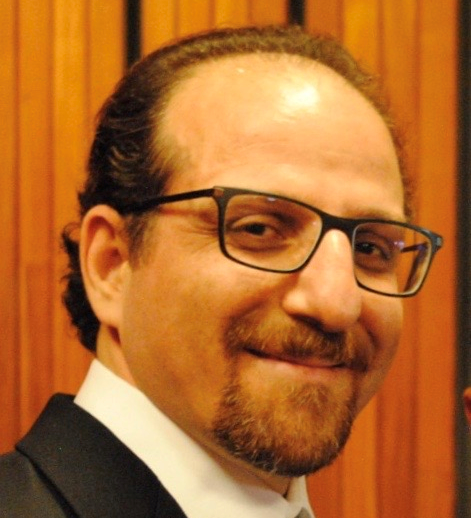
Jafar Rezaei holds the position of Associate Professor and Head of the Transport and Logistics section at the Faculty of Technology, Policy, and Management at Delft University of Technology (TU Delft) in the Netherlands, where he earned his Ph.D. in 2012. His research focuses on behavioral decision-making methodologies and their applications across various domains, including logistics, supply chain management, and the health sector. Jafar Rezaei is widely recognized for his contributions to the development of several decision-making methods, notably the Best-Worst Method (BWM), which has emerged as a mainstream approach in the field of multi-criteria decision-making. In addition to his research, he teaches courses on supply chain management, logistics, and multi-criteria decision analysis. Furthermore, He serves as the editor-in-chief for the Journal of Multi-Criteria Decision Analysis, a preeminent journal in the MCDA field.
Blaise Pascal Award
To promote the journal as a flag journal in data science, Springer Nature is proud to announce the establishment of the Blaise Pascal Award for Outstanding Contribution in Data Science to be given annually to the author(s) of the best paper published in Annals of Data Science (AODS) (effective from 2024). The recipient of the award will be selected by the Editor-in-Chief in consultation with the award committee formed by the members of the Editorial Board.
The selection criteria for the Blaise Pascal Award are:
- Significance of the paper to the field of Data Science
- The extent to which the paper is interesting
- Records of academic citations
- Theoretical impact on Data Science
- Use of appropriate methodological rigor
- Clarity of writing and/or presentation

James M. Tien is currently Dean Emeritus of the College of Engineering at the University of Miami, Coral Gables, Florida. He received the BEE from Rensselaer Polytechnic Institute (RPI) and the SM, EE and PhD from the Massachusetts Institute of Technology (MIT). He has held leadership positions at Bell Telephone Laboratories, at the Rand Corporation, and at Structured Decisions Corporation (which he co-founded in 1974). He joined the Department of Electrical, Computer and Systems Engineering at Rensselaer in 1977, became Acting Chair of the department, joined Department of Decision Sciences and Engineering Systems as its founding Chair, and twice served as the Acting Dean of Engineering at RPI. Dr. Tien's research interests include the development and application of decision-making techniques and he has published extensively and has been honored with both teaching and research awards, including being elected a Fellow in IEEE, INFORMS and AAAS and being a recipient of the IEEE Joseph G. Wohl Outstanding Career Award, the IEEE Major Educational Innovation Award, the IEEE Norbert Wiener Award, and the IBM Faculty Award. In 2001, Dr. Tien was elected to the prestigious U.S. National Academy of Engineering.
Thomas L. Saaty Award in Creative Thinking and Methodologies

Luis G. Vargas was the recipient of the Juan March Foundation Scholarship, Madrid, Spain, to the University of Pennsylvania in 1976-78. He won the Outstanding Professor of the Year Award at the Joseph M. Katz Graduate School of Business in 1984. He was the coordinator of the Quantitative Interest Group from 1987 to 1991; the coordinator of the Artificial Intelligence Interest Group from 1991 to 1994; Area Director of Decision, Operations and Information Technology 2009-2012; chair of the Second International Symposium on the Analytic Hierarchy Process (ISAHP), held in Pittsburgh August 11-14, 1991, at the Joseph M. Katz Graduate School of Business; and the 15th ISAHP held in Hong Kong July 12-15, 2018. He is also Founder and Director of the International Center for Conflict Resolution 2018. Luis Vargas has focused his research on decision theory, practical applications of the Analytic Hierarchy Process (AHP, measurement of resource utilization, group decision making, forecasting, and conflict resolution).




